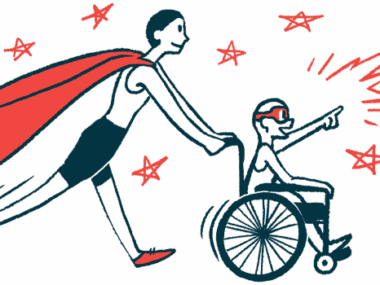Dravet Syndrome with Parkinsonian Features Linked to Specific Gene Mutations in Case Report
Written by |

Mutations in a specific gene could be behind adult Dravet syndrome with motor features of Parkinson’s disease, according to case report.
The study, “The adult motor phenotype of Dravet syndrome is associated with mutation of the STXBP1 gene and responds well to cannabidiol treatment,” was published in the journal Seizure.
Most cases of Dravet syndrome are caused by a mutation in the SCN1A gene. However, recent studies have reported that mutations in other genes, such as STXBP1, can also lead to the development of the disease.
“STXBP1 mutations cause a broad spectrum of epileptic syndromes related to fever, ranging from simple febrile seizures to severe epileptic encephalopathies,” the authors wrote.
Researchers are now reporting the case of a 19-year-old girl with a history of epilepsy since infancy. At 6 months old, she had her first generalized seizure, which occurred while she also had fever due to a viral infection.
Her clinical scenario did not change significantly until she was 6 years old, when she started having multiple generalized seizures — more than 15 a day — and began to show noticeable delays in cognitive abilities.
Since the age of 13, she had experienced episodes of sudden, involuntary muscle contractions, a condition known as myoclonus, which were triggered by sound and tactile stimuli.
One year before the report, the patient began to develop symptoms of Parkinson’s disease, including bradykinesia, or slowness of movement, which severely affected her ability to walk. She also developed mood swings, impulsivity, aggressive behavior and visual hallucinations.
A genetic analysis revealed the girl carried mutations in the STXBP1 gene, which were thought to be the possible culprit of her symptoms.
Clinicians prescribed her cannabidiol, a non-psychoactive marijuana extract, as an add-on therapy to her primary medications.
“Since then, she has experienced a considerable reduction in the number of seizures to less than five seizures a day, and there has also been a striking improvement in her motor abilities. At present, she is able to walk unassisted for more than 100 m [meters],” the researchers wrote.
This case report suggests that mutations in the STXBP1 gene can cause Dravet syndrome without the involvement of SCN1A mutations. Of note, STXBP1 mutations can lead to impairments in motor function that have parkinsonian features.





